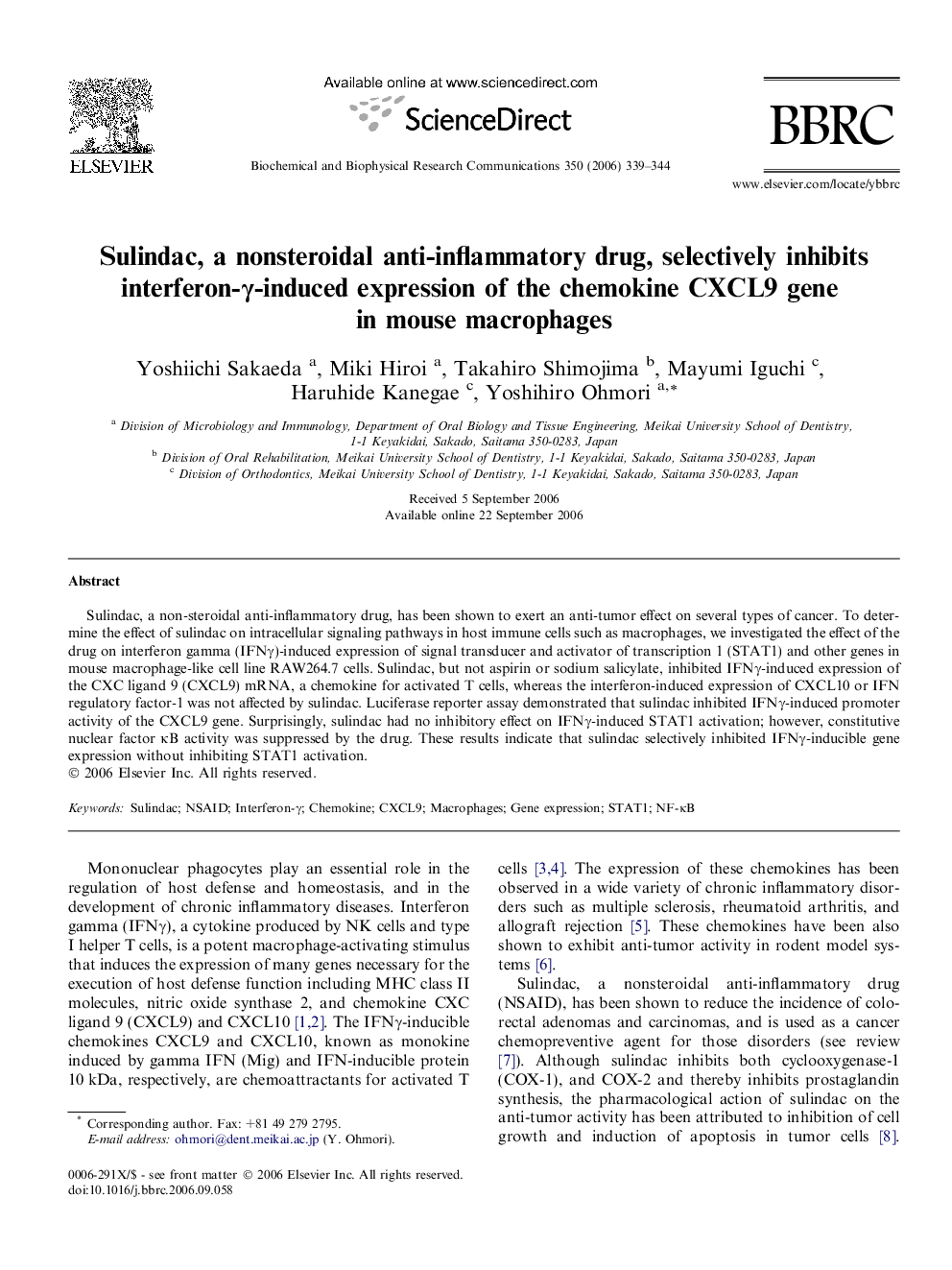| Article ID | Journal | Published Year | Pages | File Type |
|---|---|---|---|---|
| 1940494 | Biochemical and Biophysical Research Communications | 2006 | 6 Pages |
Sulindac, a non-steroidal anti-inflammatory drug, has been shown to exert an anti-tumor effect on several types of cancer. To determine the effect of sulindac on intracellular signaling pathways in host immune cells such as macrophages, we investigated the effect of the drug on interferon gamma (IFNγ)-induced expression of signal transducer and activator of transcription 1 (STAT1) and other genes in mouse macrophage-like cell line RAW264.7 cells. Sulindac, but not aspirin or sodium salicylate, inhibited IFNγ-induced expression of the CXC ligand 9 (CXCL9) mRNA, a chemokine for activated T cells, whereas the interferon-induced expression of CXCL10 or IFN regulatory factor-1 was not affected by sulindac. Luciferase reporter assay demonstrated that sulindac inhibited IFNγ-induced promoter activity of the CXCL9 gene. Surprisingly, sulindac had no inhibitory effect on IFNγ-induced STAT1 activation; however, constitutive nuclear factor κB activity was suppressed by the drug. These results indicate that sulindac selectively inhibited IFNγ-inducible gene expression without inhibiting STAT1 activation.
